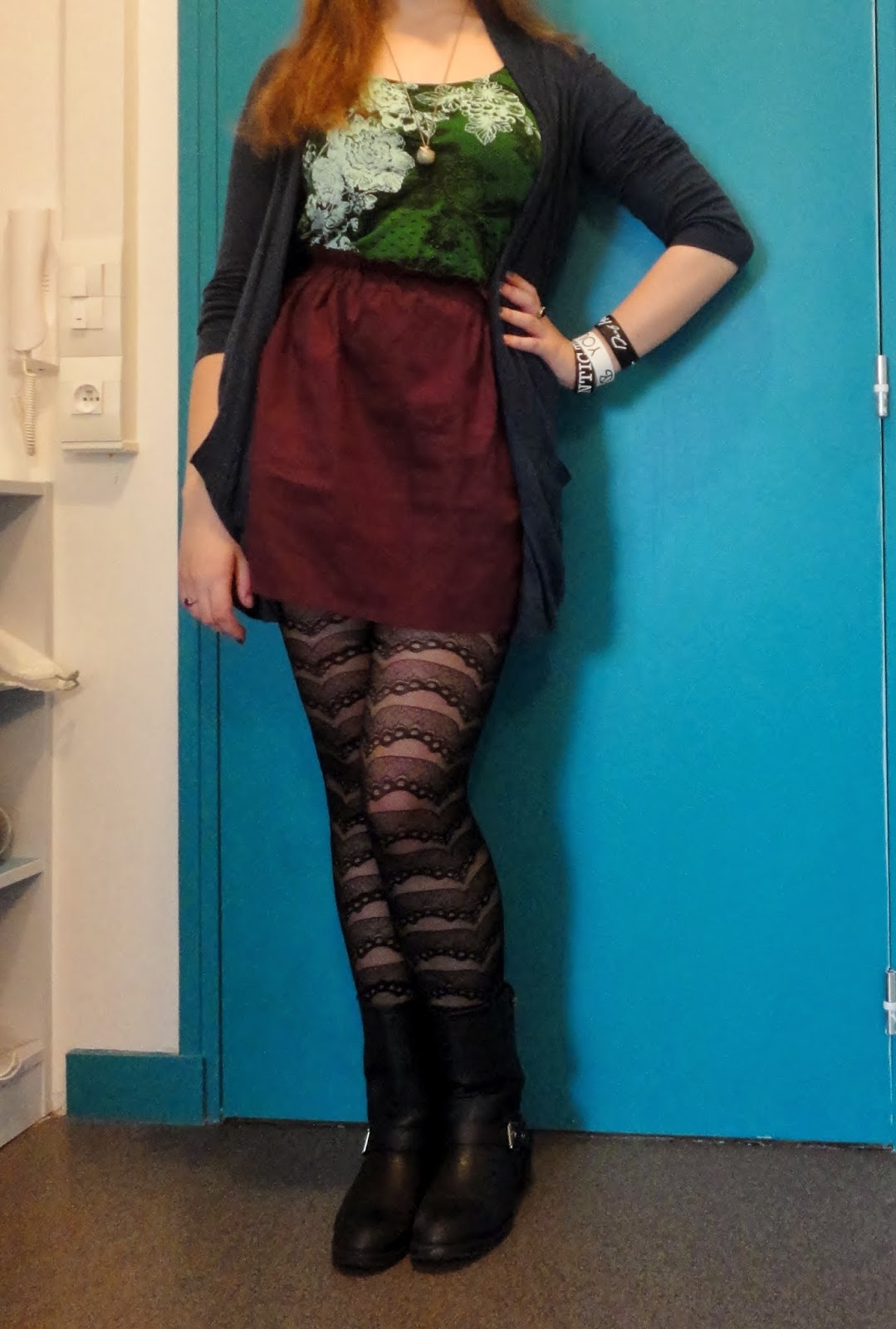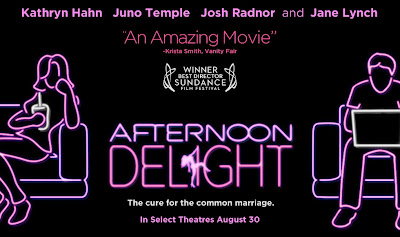
Review – Afternoon Delight
12 February 2014
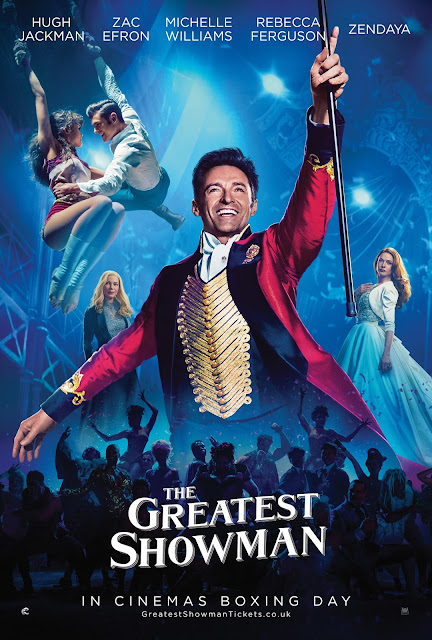
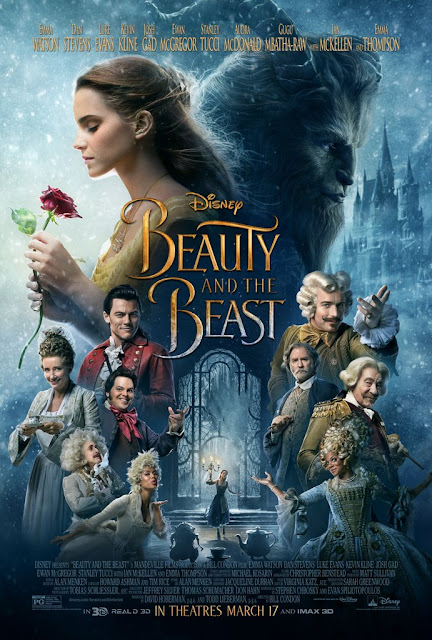
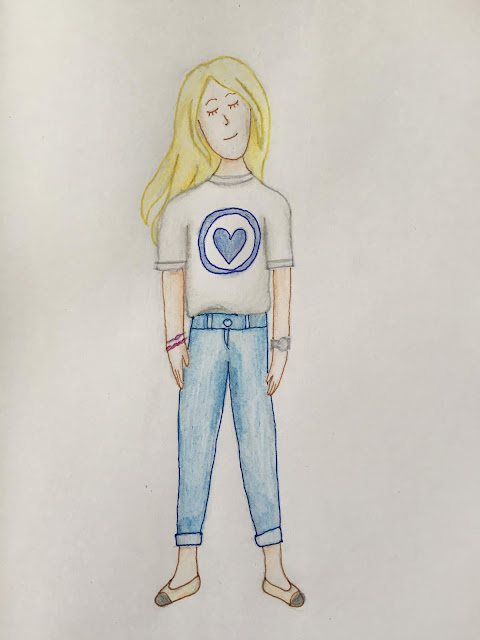
So, this may turn out to be less of a
review, and more my thoughts on the film’s themes and characters (spoilers
ahead!). First of all though, I will say that I really enjoyed Afternoon Delight , perhaps more than I expected too. It was well acted and directed, but
, perhaps more than I expected too. It was well acted and directed, but
most of all, it was original. So many films nowadays start to become similar,
or at the very least, predictable. But this one managed to surprise me, and I
couldn’t quite decide what the ending would be; it wasn’t a shock or a surprise
per say, just difficult to decide which route the story would take.
review, and more my thoughts on the film’s themes and characters (spoilers
ahead!). First of all though, I will say that I really enjoyed Afternoon Delight
most of all, it was original. So many films nowadays start to become similar,
or at the very least, predictable. But this one managed to surprise me, and I
couldn’t quite decide what the ending would be; it wasn’t a shock or a surprise
per say, just difficult to decide which route the story would take.
I want to discuss the characters and their
issues, so I’ll start with the protagonist, Rachel, a wife and mother who is
entirely unhappy with her life. She has become stuck in a monotonous routine,
feeling trapped and unable to communicate with anyone, least of all her
husband. Although I cannot relate to her experience, I can fully understand
where she is coming from, and why she turns to someone like McKenna. Although
she claims to want to help her, McKenna is really a way of bringing excitement
and change into her life, someone daring and scandalous, the things that Rachel
cannot be with her life the way it is now. While ultimately she fails in
helping McKenna, she does help herself. McKenna shows her a different
lifestyle, one which Rachel is shocked by. Adopting a stripper may seem like an
open-minded thing to do, but it becomes apparent that Rachel is just as
old-fashioned about sexuality as the rest of her suburban community, when she
witnesses the full extent of McKenna’s work. Rachel is trying to find out who
she wants to be, and realises that this is not the sort of change she wants.
issues, so I’ll start with the protagonist, Rachel, a wife and mother who is
entirely unhappy with her life. She has become stuck in a monotonous routine,
feeling trapped and unable to communicate with anyone, least of all her
husband. Although I cannot relate to her experience, I can fully understand
where she is coming from, and why she turns to someone like McKenna. Although
she claims to want to help her, McKenna is really a way of bringing excitement
and change into her life, someone daring and scandalous, the things that Rachel
cannot be with her life the way it is now. While ultimately she fails in
helping McKenna, she does help herself. McKenna shows her a different
lifestyle, one which Rachel is shocked by. Adopting a stripper may seem like an
open-minded thing to do, but it becomes apparent that Rachel is just as
old-fashioned about sexuality as the rest of her suburban community, when she
witnesses the full extent of McKenna’s work. Rachel is trying to find out who
she wants to be, and realises that this is not the sort of change she wants.
McKenna is a fascinating character herself.
As stated, Rachel cannot bring herself to accept her lifestyle, and the
majority of society views strippers as whores using their bodies instead of
their brains, their sole function being to pleasure men. But what we find in
McKenna is not someone who lets society shame her in this way. McKenna enjoys what she does, getting as much
pleasure from it as her clients. Even when in receipt of Rachel’s help, she
continues to visit her clients, claiming it’s for the money. She doesn’t want
to be saved from her lifestyle, because she sees nothing wrong with it. And
this is true in many ways. Women like McKenna are not forced to take up this
profession; she has willingly chosen to make her living this way, and this is
almost a form of female empowerment. She is
taking control of her sexuality, not letting society dictate to her what is
proper and what is not, and in this way her character works as a critique of society’s
old-fashioned, misogynistic expectations. When Rachel becomes repulsed by her
actions, McKenna starts to feel abandoned, and so retreats to what she knows –
sex. She openly and unapologetically admits to being what she is, and this is
so refreshing to see. And although her actions were wrong, and result in a broken
marriage, the fault lies just as much with the man she sleeps with as it does
her, and it is wrong to throw blame around in any other way.
As stated, Rachel cannot bring herself to accept her lifestyle, and the
majority of society views strippers as whores using their bodies instead of
their brains, their sole function being to pleasure men. But what we find in
McKenna is not someone who lets society shame her in this way. McKenna enjoys what she does, getting as much
pleasure from it as her clients. Even when in receipt of Rachel’s help, she
continues to visit her clients, claiming it’s for the money. She doesn’t want
to be saved from her lifestyle, because she sees nothing wrong with it. And
this is true in many ways. Women like McKenna are not forced to take up this
profession; she has willingly chosen to make her living this way, and this is
almost a form of female empowerment. She is
taking control of her sexuality, not letting society dictate to her what is
proper and what is not, and in this way her character works as a critique of society’s
old-fashioned, misogynistic expectations. When Rachel becomes repulsed by her
actions, McKenna starts to feel abandoned, and so retreats to what she knows –
sex. She openly and unapologetically admits to being what she is, and this is
so refreshing to see. And although her actions were wrong, and result in a broken
marriage, the fault lies just as much with the man she sleeps with as it does
her, and it is wrong to throw blame around in any other way.
I’d also like to briefly mention some
other characters. I liked Jeff’s role in the film, as he was clearly just as
stuck and unable to communicate as Rachel, although didn’t go to her extremes
to counteract these emotions. However, while they were having marriage
problems, he stuck by her for a long time, including the entirety of McKenna’s
staying with them, and never once cheated on Rachel. It would have been all too
easy, and McKenna perfectly willing, but he remains faithful. And even after
their climactic fight, this marriage does not end in divorce. I loved seeing
them struggle and fight to make things work, and not just take the easy option,
which is all too common nowadays. I also found Lenore, the therapist, very
interesting, in her constant desire to discuss her own life during therapy
sessions, culminating in the admittance of her own relationship breaking down.
It was somewhat reassuring I thought, to see that even those who seem entirely
put together with their lives on track, can still be struggling and face
enormous setbacks. Even the therapists need therapy.
other characters. I liked Jeff’s role in the film, as he was clearly just as
stuck and unable to communicate as Rachel, although didn’t go to her extremes
to counteract these emotions. However, while they were having marriage
problems, he stuck by her for a long time, including the entirety of McKenna’s
staying with them, and never once cheated on Rachel. It would have been all too
easy, and McKenna perfectly willing, but he remains faithful. And even after
their climactic fight, this marriage does not end in divorce. I loved seeing
them struggle and fight to make things work, and not just take the easy option,
which is all too common nowadays. I also found Lenore, the therapist, very
interesting, in her constant desire to discuss her own life during therapy
sessions, culminating in the admittance of her own relationship breaking down.
It was somewhat reassuring I thought, to see that even those who seem entirely
put together with their lives on track, can still be struggling and face
enormous setbacks. Even the therapists need therapy.
The entire film seemed to be a message of
positivity, reassuring us that facing difficulties in life, even when things
appear to be fine on the surface, is entirely normal. And, although it may be
the more difficult option, it encourages us to keep fighting through the hard
times, and not give up easily. I found the film very refreshing, in its shaking
up of our pre-conceived notions regarding sexuality; in its depiction of realistic
modern life with all its trials and problems; and in its ability to give us a
happy ending without turning into a soppy cliché. It was a film that made me
stop and think about life, and those are always the best kinds.
positivity, reassuring us that facing difficulties in life, even when things
appear to be fine on the surface, is entirely normal. And, although it may be
the more difficult option, it encourages us to keep fighting through the hard
times, and not give up easily. I found the film very refreshing, in its shaking
up of our pre-conceived notions regarding sexuality; in its depiction of realistic
modern life with all its trials and problems; and in its ability to give us a
happy ending without turning into a soppy cliché. It was a film that made me
stop and think about life, and those are always the best kinds.
Newer
Getting Fit
You May Also Like

Review – The Greatest Showman
18 January 2018
Review – Beauty and the Beast
29 March 2017
